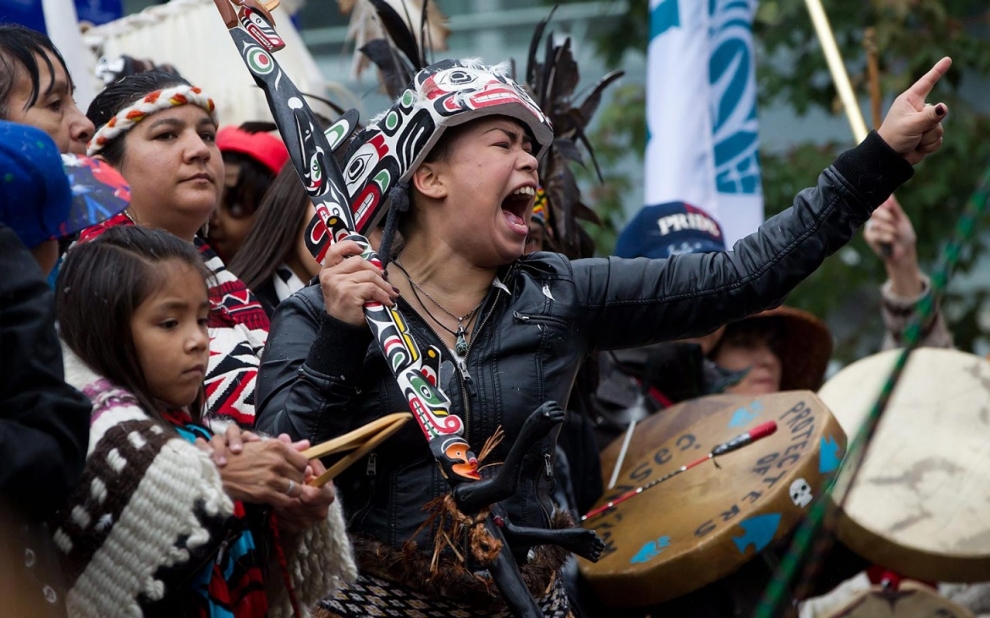The North conjures images of an untouched land. However, youths who know and who have experienced the North also know that the region’s natural beauty is under threat from prospects of resource development and environmental degradation. These issues are among the chief concerns of the Youth Arctic Coalition (YAC), a new independent forum fostering youth engagement in Arctic governance that held its first conference, titled “Breaking the Ice,”on Feb. 1 and 2 in Ottawa.
The conference invited youths from all Arctic and subartic regions, including representatives of indigenous communities, for two days of brainstorming, discussion and debate on Arctic issues with other engaged youths from around the globe. In addition to the meeting in Ottawa, delegates could participate virtually from designated “satellite” meeting locations across the Arctic. Many delegates in Northern Canada, Russia, and Scandinavia were able to give their input on the development of the YAC’s positions and future initiatives through Skype.
Representatives at the conference included Tapiriit Kanatami, president of Canada’s National Inuit Organization, and Leona Agglukkaq, president of the Arctic Council. Youth activists hailed from various environmental and political interest groups and also included representatives of the Saami people, an indigenous group residing in Northern Norway, Sweden, Finland, and Russia.
Presentations and group discussions at the conference touched upon the growing role of resource extraction in the agenda of Arctic governance. As improved extraction technologies and more navigable Northern transportation routes increasingly open access to unexploited natural gas and oil resources, the Arctic Council and the United Nations are struggling to establish mutual agreements on environmental regulations concerning oil extraction, water contaminants and greenhouse gas emissions. As a result, the YAC has hailed the development of policy responses for these emerging environmental and sovereignty issues as a key goal moving forward.
Indigenous groups in the North also often find themselves underrepresented in decisions made on resource extraction in their communities. Mining and oil extraction projects promise jobs and increased living standards, but can create new problems. Delegates at the conference emphasized the economic detriments of reliance on oil and non-renewable resources, as well as longstanding enviromental impacts of the extraction industry that post threat to traditional economic livelihoods such as fishing and hunting. Most alternative developmental initiatives proposed by community members, including renewable energy programs, stiffer environmental regulation and educational infrastructure for Northern communities are overlooked in national political arenas. The input of local populations is also rarely factored into policy decisions.
Despite these challenges, delegates and youth organizations at the conference discussed ideas for collective action and offered myriad perspectives on activism and lobbying initiatives. Members of “Natur Og Ungdom”, or “Nature in Youth”, a Norwegian environmental activist group, presented their experience participating in protests, political lobbying and civil disobedience against mining and oil extraction companies in order to shift national dialogues on Arctic resource development beyond economic considerations. By contrast, many Canadian and American delegates shared more cooperative approaches such as speaking at the UN’s annual Conference of Parties on climate change and promoting environmental regulation and indigenous-rights agendas within the Arctic Council.
The dialogue at the YAC conference presented an interesting crossroads between aggressive youth activism and more moderate and academic voices accepting the inherent challenges of developing Arctic communities’ infrastructure and economy. For youths of the North and activists from other regions of the globe, the task of injecting long-term environmental and indigenous considerations into the crossroads of Big Oil and national economic interests requires stronger coordinated action. The YAC may prove to be a valuable centerpiece in the task of clarifying on the consequences of Arctic resource development and presenting the perspectives of the affected indigenous peoples and residents of the North.





